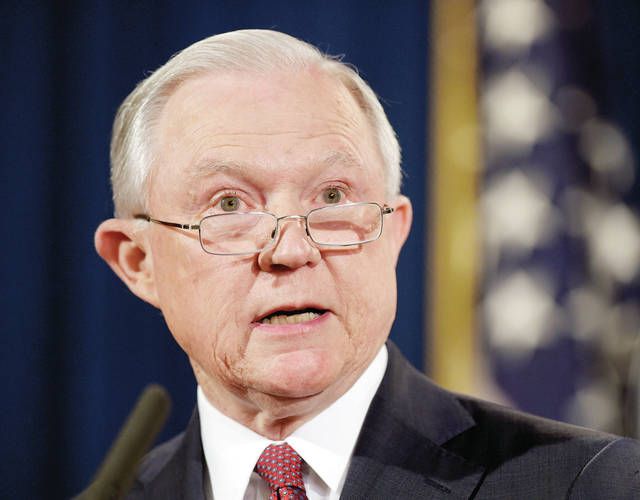Click here to subscribe today or Login.
Attorney General Jeff Sessions delivered a powerful message this week in support of free speech on college campuses, warning that the American university is being transformed into an “echo chamber of political correctness and homogeneous thought.” He also promised that the Justice Department would support students who have gone to court to challenge restrictions on their speech.
There was a lot of truth in the attorney general’s indictment, delivered Tuesday in a speech at the Georgetown University Law Center.
We too have expressed concerns that controversial speakers might be silenced because universities fear violent protests, effectively granting protesters a “heckler’s veto.” We too have criticized college administrations that have confined students expressing their opinions and passing out literature to tiny “free speech zones.” We too have expressed bemusement that UC Berkeley, in announcing arrangements for the recent appearance by conservative commentator Ben Shapiro, informed students that counseling would be available — implying that listening to views that offend you is hazardous to your mental health. (Said Sessions: “Mr. Shapiro spoke to a packed house. And to my knowledge, no one fainted, no one was unsafe. No one needed counseling.”)
But while we find much to admire in the attorney general’s message, he is a flawed messenger. We worry that Sessions’ embrace of free speech on campus — and his plan to deploy the Justice Department in vindicating it — might be designed to protect only conservative speech or to score political points with those on the right who believe liberal-arts campuses have turned into socialist re-education camps.
One problem with Sessions as a free-speech champion is that he serves a president who repeatedly has shamed and threatened those who exercise that right. As a candidate, Donald Trump promised to “open up our libel laws” to make it easier for politicians to sue newspapers. As president-elect, he suggested that protesters who burned the American flag — an act the Supreme Court has said is protected by the 1st Amendment — must face “consequences — perhaps loss of citizenship or year in jail!” As president, he has said that major news organizations are the “enemy of the American people.”
In extolling the importance of free speech on campus, Sessions was careful to stress that the Justice Department under his leadership would “enforce federal law, defend free speech, and protect students’ free expression from whatever end of the political spectrum it may come.” But most prominent targets of campus protests and blockades — and worse — have been conservative figures such as Milo Yiannopoulos, Ann Coulter, Heather Mac Donald and Charles Murray (who was the target of a violent demonstration at Middlebury College last March in which a professor was injured).
That imbalance is not Sessions’ fault. It’s a reflection of the fact that, at least at highly competitive universities, the prevailing point of view is liberal and dissenting views are often conservative.
But if Sessions’ free-speech campaign is to be credible, it mustn’t be applied in an ideological or politically motivated manner. It’s especially important that the Justice Department be absolutely evenhanded in filing “statements of interest” siding with students who have challenged policies at universities that restrict freedom of speech.
On Tuesday the Justice Department filed such a “statement of interest” in support of Christian students at Georgia Gwinnett College in Lawrenceville, Ga., who say they were unconstitutionally prevented from communicating their religious message on campus. The fact that the students are Christians and thus sympathetic plaintiffs for conservatives doesn’t mean they aren’t worthy of the Justice Department’s support for their 1st Amendment claim. But Sessions and his lawyers must be scrupulous about identifying and defending students whose political or religious views might not be so congenial to the administration.
Otherwise he will encourage cynicism and undermine support for the ideal that college campuses be the “forum for the competition of ideas” he rightly celebrated in his speech.
– Los Angeles Times





